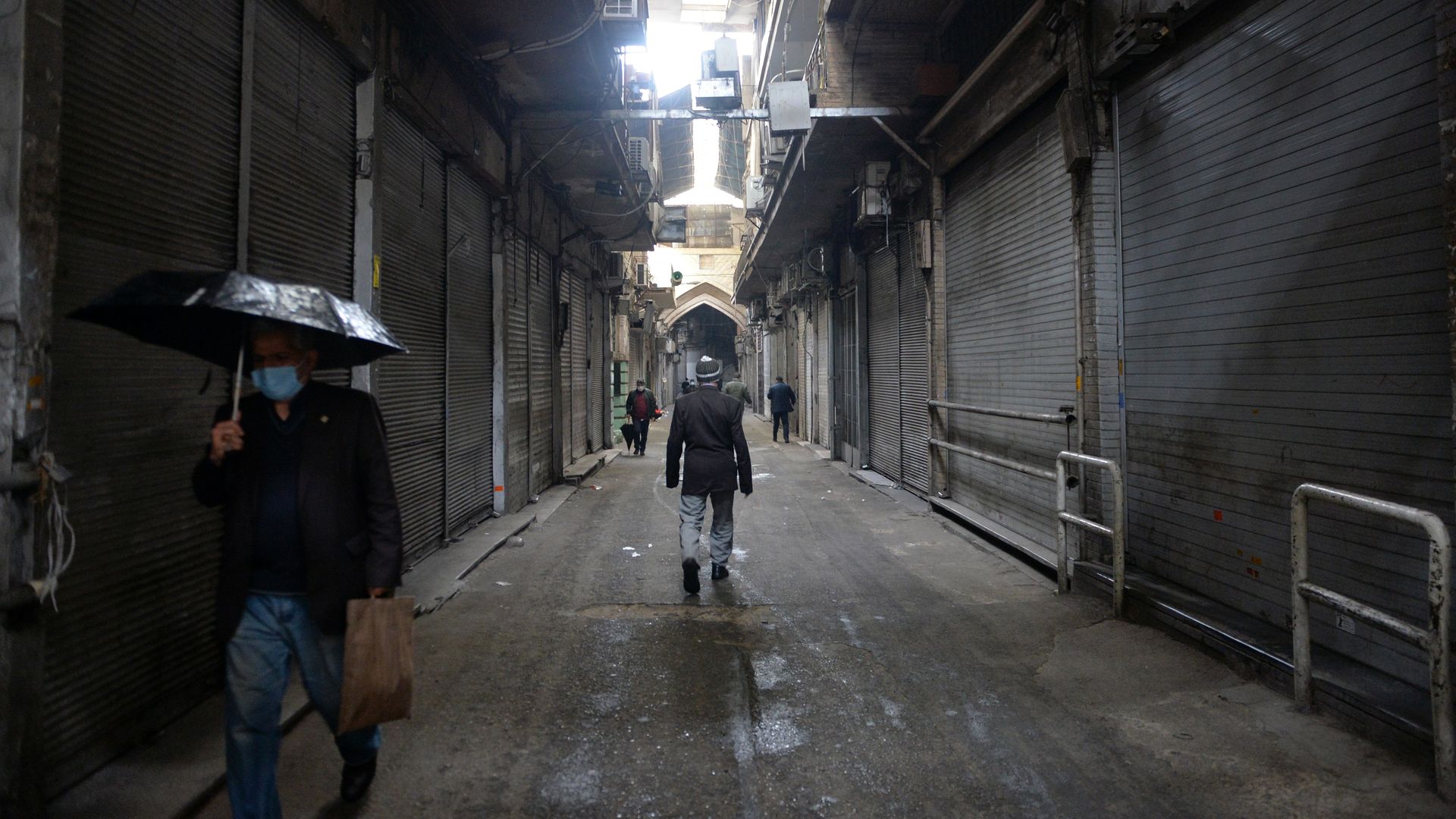Nov 21, 2020 - World
Iran closes businesses, limits travel amid coronavirus surge
Add Axios as your preferred source to
see more of our stories on Google.

A view of closed stores in Tehran Grand Bazaar after Iran imposed tougher restrictions nationwide to stem the spread of the coronavirus. Photo: Bahrami/Anadolu Agency via Getty Images
